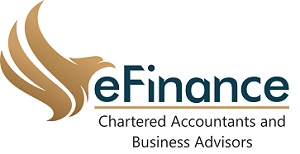In the spirit of capitalising on every minute and dime, as we navigate through this relentless pace of business evolution, efficiency becomes the cornerstone of competitiveness. Financial technology, or FinTech, has become the financial management stalwart, revamping the methods businesses utilise for accounting chores. Be it the automation of ledgers or fine-tuning payment methodologies, the abundance of available tools for accountants can save you time and dollars. But the real puzzle lies in selecting the one that fits your unique requirements.
In this post, we’ll take a journey through the FinTech realm and discuss key factors that aid in picking the best tools to turbocharge your accounting practices. So let’s dive right in!
A Tour of FinTech
FinTech has recently piqued considerable interest. It’s a broad term referring to the amalgamation of technology and financial services – think of mobile banking, online transactions, asset management, or peer-to-peer lending. As businesses increasingly intertwine with technology, FinTech is emerging as the chosen path to financial management. It offers a myriad of benefits like enhancing efficiency and precision. But the choice paralysis induced by the multitude of options can be daunting. Fear not, our guide here will help you navigate this sea of tools, covering various types and their potential value-adds for your business. We’ll also provide tips to evaluate the options and ensure your selection aligns perfectly with your needs.
The Perks of FinTech Tools for Accountants
FinTech tools for accountants come with several attractive perks. The headliner is undoubtedly the time and efficiency gains these tools can bring to financial management. They also offer more transparent, accurate reporting, and deeper insights into financial data. These tools have the potential to streamline accounting procedures and slice costs.
However, one size doesn’t fit all. It’s essential to assess your unique needs and cherry-pick the tools that fit best. But if your goal is to enhance efficiency and upgrade your financial management, incorporating quality FinTech tools is an excellent first step.
Crucial Traits of FinTech Tools
In the pursuit of getting your business finances in perfect order, the choice of tools becomes critical. FinTech provides a spectrum of choices that can re-engineer your accounting process. But amidst this abundance, how do you find the right fit? Here are some must-have attributes in FinTech tools:
1. Automation:
Top-tier FinTech tools will automate mundane tasks like data input and invoicing, saving you time and effort, and freeing you up for strategic tasks.
2. Integration:
Look for tools that dovetail effortlessly with your existing accounting software. This avoids data migration hassles between platforms, ensuring a fluid workflow.
3. Reporting and Analysis:
Valuable financial insights can be extracted from reporting and analytics features provided by FinTech tools. This information can drive informed decisions about resource allocation and profit enhancement.
4. User-friendliness:
Select tools that are intuitive and backed by stellar customer support. This will flatten the learning curve and help you extract maximum utility in the long run.
Making the Perfect FinTech Tool Choice
Identifying your specific needs is the first step in choosing the ideal FinTech tool. Are you seeking a tool for better financial management, to save time and money on accounting tasks, or to automate some processes? Understanding your needs allows you to explore suitable FinTech options. Don’t forget to consider features, pricing, and user reviews when comparing. Once you shortlist a few potentials, take them for a test drive before finalising your choice. Many FinTech tools offer free trials, so make the most of these to ensure you make the right decision.
Best Practices for Employing FinTech Tools
When it comes to adopting the appropriate FinTech tools for your accounting needs, remembering a few golden rules will serve you well. First and foremost, the tools you opt for should bring value by saving you time and money in the long run. A tool that ends up costing more than it saves will defeat its purpose.
Next, it’s crucial that the tools you select work harmoniously together. A hodgepodge of tools that clash will lead to unnecessary frustration and wasted time.
Finally, the tools you pick must cater specifically to your needs. Don’t be tempted by the shiniest tool or the bargain basement price tag. Contemplate what exactly you require and find a tool that checks all those boxes. If you keep these best practices in mind, you’re bound to find the FinTech tools that suit your accounting needs just right.
Considerations of Security and Compliance in FinTech Tool Selection
Security and compliance should be top-of-mind when venturing into FinTech. These tools deal with sensitive information like credit card numbers, bank account details, and personal identification data. Therefore, it’s imperative to choose a FinTech tool that places a high priority on security and compliance.
A tool’s data encryption capabilities are a good indication of its commitment to security. Ensure that the FinTech tool you consider provides robust encryption. Adherence to industry-standard compliance regulations is another crucial aspect. These standards help safeguard your data, so it’s vital to select a tool that meets or surpasses them.
Do not overlook customer support in your selection process. Responsive customer support can be a godsend if you encounter any issues or have queries while using the tool. Ensuring that the tool provider offers good customer support will help you resolve any potential issues promptly.
By keeping these aspects at the forefront of your selection process, you’ll choose a FinTech tool that caters to your needs while keeping your data safe and secure.
In Conclusion
FinTech tools are an invaluable asset for supercharging efficiency and streamlining your accounting requirements. From cloud-based solutions that offer financial data access from anywhere, to automating invoicing to minimise manual errors, a wide range of options is available for businesses of every size.
A thorough evaluation of your current processes to identify which features would be most advantageous will ensure that you make the best decision when choosing the right FinTech solution for your business.






